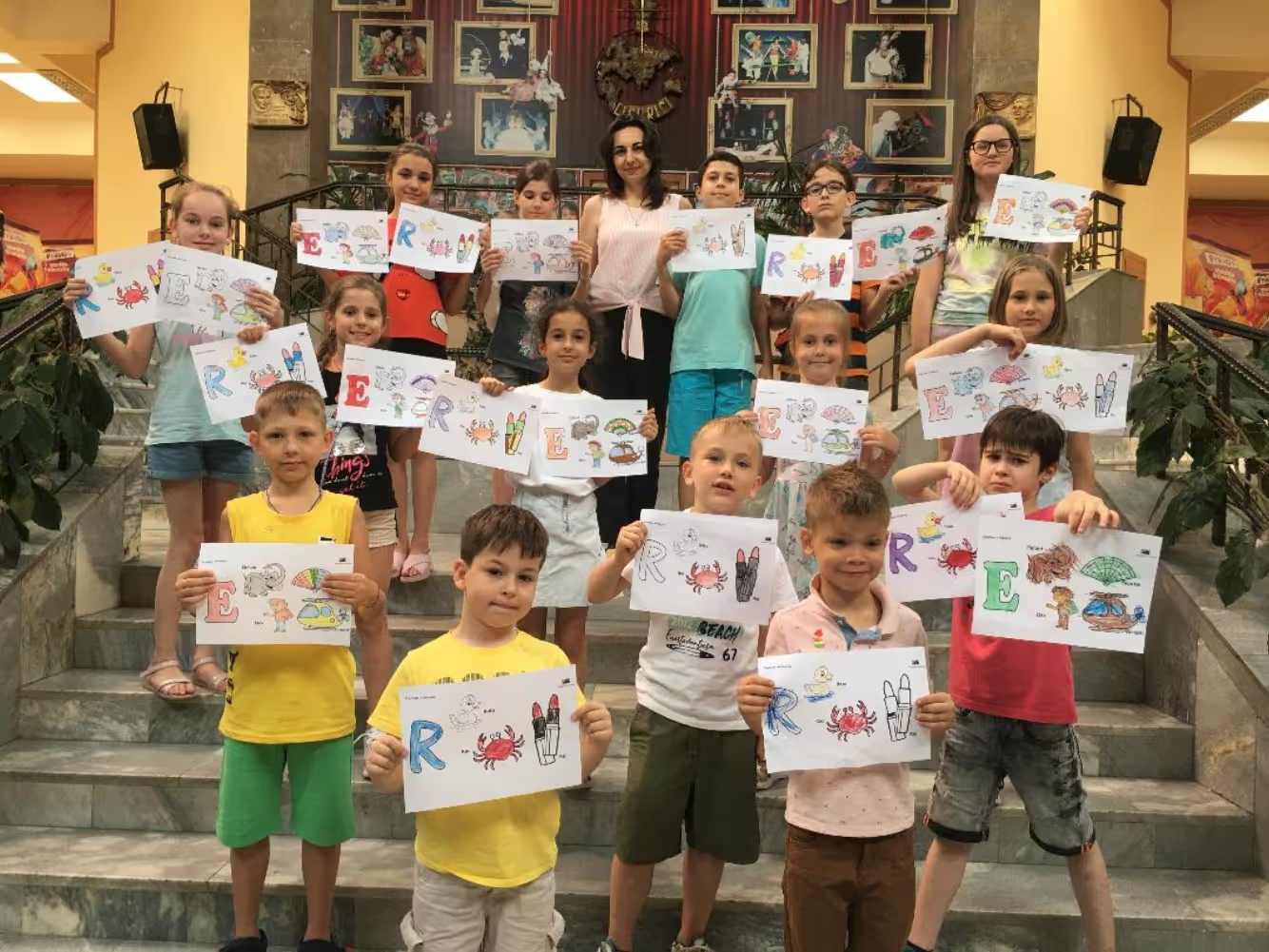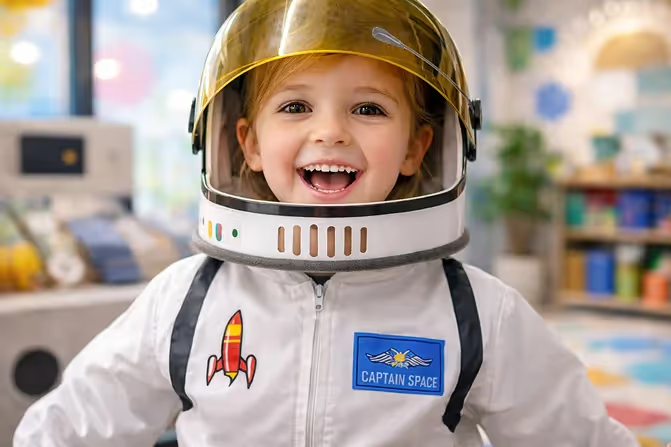Non-formal education for refugee children in Moldova
Since the start of the war in Ukraine, The UNHCR estimates that more than 542,000 Ukrainian refugees have passed through Moldova, with large numbers remaining in the country — the majority of these being women and children.
Starting in April, the Step by Step Educational Program in Moldova (SBSM) has been actively engaged in responding to the crisis through their project, “Creating Day Camps in Chisinau”, which works to extend access for Ukrainian refugee children and families in Chisinau city (the capital of Moldova) to non-formal education programs, as well as training teachers to respond to the crisis. With financial support from UNICEF Moldova, this project is due to run until August.
Children missing out on education
Despite the fact that the Republic of Moldova in theory offers opportunities for all Ukrainian refugee children to be reintegrated into schools and kindergartens, many of these children are missing out on education, because they are not registered in the education system. In Moldova, children are registered through an application made by the parent or legal guardian to the local education division or institution. However, SBSM has recognized that the language barrier is inhibiting many Ukrainian caregivers from taking these necessary steps. Alongside this, many parents seem reluctant to register their children in the system, as they hope to return to their homes.
In addition to these barriers, the state-run educational institutions have expressed that they have limited space and resources to extend to the refugees. These challenges illuminate the importance of non-formal education programs, such as the “day camps” project, and the value of its ability to meet refugee families where they are and to provide flexible solutions to their needs.
Mapping the refugees and identifying beneficiaries
So far, the biggest challenge for SBSM has been trying to map the refugees in order to gain a comprehensive picture of their needs and to identify potential beneficiaries of the project. In order to do this, SBSM has relied on the 5 big W’s: Who; Why and What their needs are; What kind of activities to plan; and Where to find the participants. However, some of these details have been hard to come by, which has made planning and implementation more complicated.
SBSM has gone some way to solving the refugee outreach problem and has attracted beneficiaries by posting announcements on Ukrainian social media platforms, such as Мамы Кишинева (Украина), Мамы Одессы (Кишинев), Мамы Харькова (Кишинев), and has also placed these announcements at the city refugee centers.
Alternative activities for Ukrainian children and families
In partnership with the National Puppet Theatre Licurici, SBSM has created three different programs for refugee children and families. These activities were selected for their educational as well as entertainment value — both being equally important in creating a feeling of safety and normality. The activities were primarily targeted at children, but families were also welcome.
1. Puppet shows
To entertain and occupy refugee children, SBSM and the National Puppet Theatre Licurici have been organizing puppet shows for children from the Ukrainian refugee centers and those living in rented spaces or being hosted by local families. The children who attend the shows also receive hot meals, hygiene items, and age-appropriate developmental toys, such as LEGO or puzzles.
2. Recreational developmental activities
The partnership has also arranged recreational development activities for children aged 3-17 years old. The activities include English and Romanian lessons, fun with math, junior robotics, web-design, as well as arts and crafts. Most of the teachers involved are teachers who have fled Ukraine — enabling the children to maintain a semblance of continuity and carry-on learning in a language that they are comfortable with, as well as providing a sense of purpose for the teachers. These activities take place in the hall of the puppet theatre, and include the provision of hot meals or snacks.
Alongside the developmental activities, this program also contains psychological support and group therapy sessions for children and adults, as well as individual counselling sessions for those who need it.
3. Thematic fieldtrips to venues outside Chisinau
SBSM has also arranged various master classes in areas such as, local crafts, bee keeping, and traditional architecture.
In addition to these programs, SBSM is also providing 3 online training modules, titled, “Teachers building social cohesion in the context of humanitarian crisis in Ukraine” for kindergarten and schoolteachers and administrators in the municipality of Chisinau. Close to 1,300 teachers have already benefitted from the first 2 modules.
Positively received by Ukrainian families
SBSM’s informal education program has been welcomed by Ukrainian families. The program has expanded in popularity and reach — growing from 34 participants during the first week of the project, to over 500 in June. SBSM has received much positive feedback.
“Thank you very much for the warmth and cordiality with which you surround our children. I see their joyful faces and interest in classes. A separate thank you to the teachers for skilfully organizing the meetings, and for their attention, patience and understanding. Thank you also for delighting our children with delicious snacks.” – Christina, Ukrainian mother
“We went on an excursion to the toy factory. After looking at the equipment the children and adults switched to practice and made toys ourselves. This is a memory that will last for years — the experience of mastery with your own hands.” – Irina, participant
Continuing to help Ukrainian families in autumn
Thanks to the positive reception of the recreational development programs project, SBSM with support from UNICEF and the Norwegian Refugee Council (NRC), will open another center for refugee children in Chisinau. The new center will focus specifically on “back to learning” and learning loss programs to ensure that Ukrainian children are able to continue learning and playing.
Additionally, with support from the NRC, SBSM will extend their online training program. From the autumn, SBSM will provide online trainings for public school teachers from the Balti municipality, and the Orhei, Laloveni, and Criuleni districts, based on the 3 online training modules. These teachers will be equipped with skills and information on how to respond to the refugee crisis, prevent social tension, build resilience, as well as foster tolerance, respect for diversity, and social responsibility among the children they teach.
You can offer financial support to the Association and other ISSA Members here.




